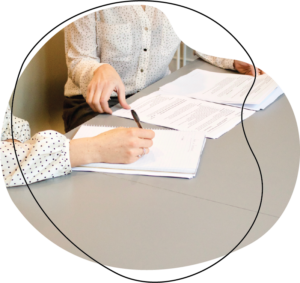The Project
Project Description
It is profoundly evident that the number of youth NEETs, especially after the COVID-19 pandemic, is increasingly growing. When taking a closer look at the statistics published by Eurostat in June 2021, there is a notable difference between the sexes in relation to the proportion of young adults who were neither in employment nor in education and training. In 2020, more than one-fifth (21.5 %) of young women (aged 20–34) in the EU were NEETs, while the corresponding share among young men was nearly a third of that (7.7%).
Such trends are witnessed across the 6 countries of Norway, Sweden, Belgium, Cyprus, Greece and Italy. In order to tackle the lack of access of NEET women in the project countries to employability, the current project seeks to address key competencies such as entrepreneurship, digitalization and connect them with employers that support and practice social entrepreneurship around the EU.

The approach followed, aspires, on the one hand, to develop skills that are fundamental for the labor market in the 21st century, while on the other one, establish networks between young female job-seekers and existing social entrepreneurs. Furthermore, it provides youth workers and educators training on how to approach social entrepreneurship with young NEET women. Overall, the WeNNETlabs project sets the objectives below:
Create a learning environment that facilitates young NEET women to enhance their key competencies through the use of game-based, online resources and tools
Upskill young NEETs, specific women with key competencies to engage them in education and training
Increase the capacity of youth workers to deliver innovative interactive resources for digitalized social entrepreneurship education in the COVID-19 era with youth NEETs
Empower youth NEETs, especially women, to acquire the necessary knowledge, skills and attitudes that will enable them to enter/ transition into the job marke
Develop high-quality digital resources among the 6 countries’ national languages addressing social entrepreneurship education for young NEETs, especially in a country-based context after the outbreak of COVID-19, to enrich current practices in the field
Develop high-quality digital resources among the 6 countries’ national languages addressing social entrepreneurship education for young NEETs, especially in a country-based context after the outbreak of COVID-19, to enrich current practices in the field
Increase the engagement and exchange between NEET youth, especially women, and employers in the field of social entrepreneurship to vitalize the job market and facilitate youth employability
Stimulate cross-sectoral collaboration among social entrepreneurs by involving them in an employment platform

Impact
We aspire that WeNEETlabs will have an equal impact on each of the participating countries as the following points are identified:
▪️Knowledge about work and employment opportunities for youngsters with solutions to actual societal and economic challenges. Thus, the national and European societies will be enriched with well equipped young women.
▪️Creation of synergies at local and national level for the consortium countries. This will be achieved through cooperation with Vocational Training Centres for young people, local bodies and organisations, municipalities and regional authorities, as well as institutions from all over the country related to young NEET women.
▪️The WeNEETlabs educational and digital material that will be applicable to other disadvantaged target groups that could be reached through synergies emergies from the project.
▪️Participating organizations will also be able to apply these learnings to other project initiatives and form new partnerships in the field, which will eventually lead to an increase in our work in the language
preservation field.


Funded by the European Union. Views and opinions expressed are however those of the author(s) only and do not necessarily reflect those of the European Union or the European Education and Culture Executive Agency (EACEA). Neither the European Union nor EACEA can be held responsible for them. 2022-1-NO02-KA220-YOU-000088071
